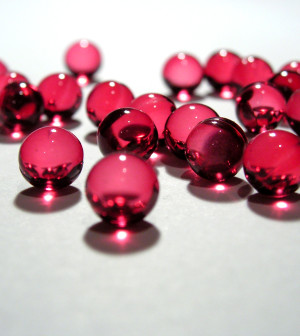- 10 Strategies to Overcome Insomnia
- Could Artificial Sweeteners Be Aging the Brain Faster?
- Techniques for Soothing Your Nervous System
- Does the Water in Your House Smell Funny? Here’s Why
- Can a Daily Dose of Apple Cider Vinegar Actually Aid Weight Loss?
- 6 Health Beverages That Can Actually Spike Your Blood Sugar
- Treatment Options for Social Anxiety Disorder
- Understanding the Connection Between Anxiety and Depression
- How Daily Prunes Can Influence Cholesterol and Inflammation
- When to Take B12 for Better Absorption and Energy
Fewer Seniors Fall While Taking Vitamin D: Study

Delivering vitamin D supplements to homebound seniors might help lower their risk of falls, a new study suggests.
Previous research has found vitamin D plays an important role in maintaining muscle strength, and some studies have suggested vitamin D may help prevent falls, researchers say. Vitamin D is found in such foods as cheese, yogurt, egg yolks and beef liver, and the skin naturally produces the vitamin when exposed to sunlight.
“Falls in homebound older people often lead to disability and placement in a nursing home,” said lead author Denise Houston, associate professor of gerontology and geriatric medicine at Wake Forest Baptist Medical Center in Winston-Salem, N.C.
Homebound seniors tend to have poor eating habits and little exposure to sunlight, putting them at increased risk for low vitamin D levels, she and her colleagues noted.
They arranged to have vitamin D supplements delivered to Meals on Wheels clients. Over five months, 68 homebound seniors received either a monthly vitamin D supplement of 100,000 international units or a placebo with their Meals on Wheels prepared-food deliveries.
At the start of the study, more than half of the seniors had insufficient vitamin D levels, and fewer than one-quarter had optimal levels. The supplements increased vitamin D from insufficient to sufficient levels in all but one senior who received the supplements, and to optimal levels in all but five.
Also, seniors who received the vitamin D supplements reported about half the falls as those in the placebo group, according to the study published online Aug. 16 in the Journal of the American Geriatrics Society.
However, the study doesn’t actually prove that higher levels of the vitamin prevented falls.
“Although these initial findings are encouraging, we need to confirm the results in a larger trial,” Houston said in a Wake Forest news release.
Every year, about one-third of seniors who live at home suffer falls, and about one in 10 falls results in serious injury, the researchers say.
More information
The U.S. National Institute on Aging has more about falls.
Source: HealthDay
Copyright © 2026 HealthDay. All rights reserved.










